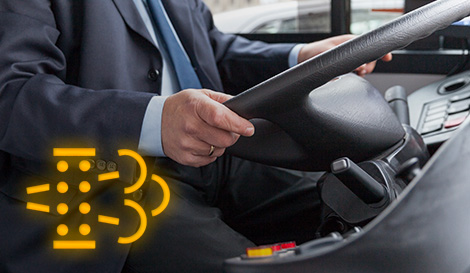Low pollution charter buses are a priority
Built into modern motor coaches, buses, and semi-trucks are aftertreatment systems designed to reduce harmful emissions. Engines have sensors that track the level soot and particulate matter in the exhaust, and once at a high level, the sensors tell the vehicle that the engine must enter a regen, or engine regeneration.
Vehicles use Diesel Particulate Filters (DPF) to collect the soot and ash produced by the engine and then Diesel Exhaust Fluid (DEF) is injected into the exhaust stream to eliminate the harmful emissions.
The regeneration process
Engines are designed primarily for semi-truck usage because the quantity of buses is only about 10% the size of the quantity of commercial semi-trucks in the United States. Semi-trucks typically travel long distances at freeway speeds and the modern engine is designed to automatically regenerate at speeds in excess of 60 mph.
Charter Buses and school buses typically travel in urban environments at speeds much slower than that, and traveling at slower speeds and idling is known to trigger regenerations more frequently.
When a regeneration is triggered, the operator can either get the vehicle up to freeway speeds to start the process, or he/she can put the vehicle in a manual regeneration, which requires the vehicle to stay idle for 30-45 minutes while it completes the process.
Unfortunately, buses can call for regeneration at any time, and this is not predictable. The engines are designed to “de-rate,” which means that the engines systematically reduce the RPMs that the vehicle will throttle to, so over a period of time, they will slowly transition to being inoperable until the regeneration cycle is complete. For the last several years, this has been very challenging for the bus industry to manage. Thankfully, the EPA has decided make an exemption that allows engine manufacturers the ability to change the protocol for bus engines, which will mean that, once engine firmware is updated, the de-rate process will be slower and more manageable – so the industry will have cleaner engines and be able to perform our job according to schedule!
If you’re planning a trip or just doing research, please feel free to contact us at Lorenz Bus Service for a no-obligation, no-pressure conversation with one of our planning professionals. Or, get an online quote now.

